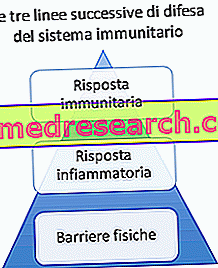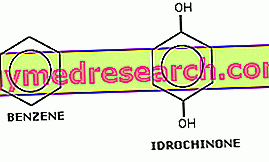BYETTA ® a drug based on exenatide
THERAPEUTIC GROUP: Other hypoglycemic agents excluding the various forms of insulin
IndicationsAction mechanismStudies and clinical effectiveness Usage and dosage instructionsWarnings Pregnancy and lactationInteractionsContraindicationsUndesirable effects

Indications BYETTA ® Exenatide
BYETTA ® useful in the treatment of hyperglycemia of the second type diabetic patient not adequately controlled by taking oral hypoglycemic agents.
For this reason, BYETTA ® is usually taken in conjunction with sulfonylureas or metformin.
Mechanism of action BYETTA ® Exenatide
BYETTA ® is a drug based on exenatide, a peptide of 39 amino acids isolated for the first time from the saliva of a reptile in 1992 and returned to clinical practice in 2005.
In fact, this peptide has a structure similar to some domains of the hormone GLP-1 (glucagon like peptide 1), produced in vivo by intestinal cells of the ileum, but characterized by a decidedly longer half-life and greater hypoglycemic efficacy.
Taken by subcutaneous administration, it reaches its maximum peak within 2 hours of intake, and through the circulatory stream is distributed to the various tissues.
The glucose-dependent hypoglycemic effect is due to the ability to act on pancreatic beta cells, increasing the secretion of insulin with meals, and gradually reducing it with lowering blood sugar, thus reproducing the physiological insulin response and thus avoiding the hypoglycemic condition.
But exenatide has a complex biological-metabolic role, also inhibiting the production of glucagon, slowing gastric emptying, thus modulating the post-prandial glycemic increase as well as reducing the sensation of appetite and improving the lipidemic profile.
Once its action is over this molecule is mainly eliminated via the kidney.
Studies carried out and clinical efficacy
1. EXENATIDE, BODY WEIGHT AND TYPE II DIABETES
One of the main factors associated with the second type of diabetic disease is being overweight, which often worsens the course of the disease. Unfortunately, most hypoglycemic therapies, even those based on insulin, seem to have a negative impact on weight, causing it to increase. In contrast to common therapies, the one with exenatide, which lasted for a period of 2 years, has also proved useful in reducing abdominal adipose tissue and improving insulin sensitivity.
2. EXENATIDE AND CARDIOVASCULAR PATHOLOGIES
Exenatide therapy is gradually taking on increasing importance in the treatment of the second type of diabetic patient, as it has proved to be capable not only of improving the altered metabolic parameters, but also of determining a substantial reduction in weight, accompanied by a significant decrease of cardiovascular events (first cause of death of the second type diabetic patient).
3. EXENATIDE AND METABOLIC PARAMETERS
The treatment of the second type diabetic patient with exenatide proved to be useful in reducing glycated hemoglobin levels to below 7%, in reducing body weight by an average of 5 kg, in reducing blood concentrations of triglycerides, in reducing blood pressure and in reducing concentrations of inflammatory markers such as the C-reactive protein. This study demonstrates the complex metabolic role of this peptide.
Method of use and dosage
BYETTA 0.25 of synthetic exenatide per ml of solution, doses of 5 mcg in pre-filled pens:
drug therapy with BYETTA ® should be started with the minimum dose of 5 mcg twice a day for at least two weeks, and possibly increased to 10 mcg twice a day.
The correct dosage in any case should be established by the doctor after a careful evaluation of the patient's pathophysiological state, the severity of his pathology and the possible concomitant intake of other hypoglycemic drugs.
Warnings BYETTA ® Exenatide
The therapeutic action of exenatide is performed exclusively on still active pancreatic beta cells, for this reason BYETTA ® is indicated in the treatment of second-type diabetes mellitus in which insulin administration is not yet required.
A variation of the common dosages may be necessary in patients with reduced renal function, in which the elimination kinetics is delayed, therefore the active principle persists in circulation for prolonged periods of time.
Exenatide treatment, when combined with sulphonylurea and metformin administration, could induce hypoglycemia; therefore it would be advisable for the patient to be instructed on the risks and symptoms of this condition, in order to implement rapid therapeutic strategies useful to avoid an aggravation of health conditions.
The hypoglycaemia itself could make the use of machinery and driving vehicles dangerous.
PREGNANCY AND BREASTFEEDING
The absence of studies concerning the safety of the fetus and the efficacy of exenatide in the control of gestational diabetes, does not in any way allow the use of BYETTA ® in the treatment of gestational diabetes.
Interactions
Several studies have evaluated the impact of exenatide on the pharmacokinetics of various active ingredients.
In a very general way it is important to consider that the slowed-down gastric emptying induced by this peptide could delay the absorption of numerous active ingredients, lengthening the times of action and the appearance of therapeutic effects.
Currently, numerous studies are underway to further characterize these properties and predict pharmacokinetic changes.
Contraindications BYETTA ® Exenatide
BYETTA ® is contraindicated in case of hypersensitivity to the active ingredient or to one of its excipients.
Undesirable effects - Side effects
Clinical studies in the literature and data from post-marketing monitoring show some side effects associated with exenatide therapy, detectable with different frequency in patients treated with BYETTA ®
Among the most common headaches, dizziness, loss of appetite, abdominal pain, nausea, vomiting, nervousness and asthenia were the most documented, while hypoglycemic episodes were observed exclusively in conjunction with the administration of metformin and sulfonylurea.
Furthermore, with a rather rare frequency, hypersensitivity reactions to the drug have been observed accompanied by various symptoms such as bronchospasm, edema, vasodilation and dermatological reactions and acute pancreatitis.
Note
BYETTA ® sold only under medical prescription.
BYETTA ® is part of the doping class: Hormones and related substances (prohibited in and out of competition).



